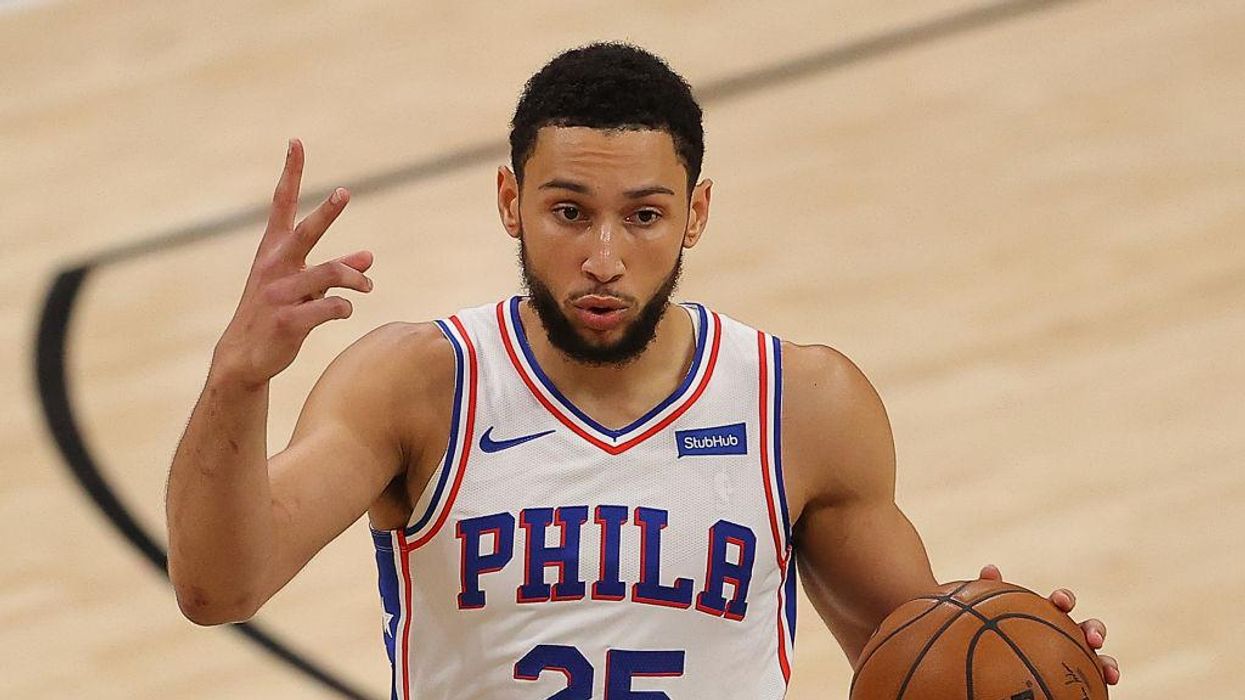
Kevin C. Cox/Getty Images

Ben Simmons is right. There is nothing for him in Philadelphia. He doesn't fit with management and doesn't fit with the fans, and any time he gathers up the nerve to shoot, the ball doesn't fit into the basket.
He also doesn't fit with Joel Embiid.
So he wants to leave. What's so hard for people to understand about this? He should leave.
His story is being cast all wrong: Yes, he lost the will to shoot and cost the 76ers a legitimate shot at a championship. Yes, he has a huge contract with four years and $147 million left. So his demand has people wondering who the hell he thinks he is.
Well, welcome to the world of player empowerment. This is the NBA now. It's not anything the NBA has fought. The league endorses it because it's a social statement, balancing power between black superstar players and white team owners.
If this is a problem for the NBA — and I don't think it is — then you can blame its socially conscious DNA.
Understand the philosophy: A long-term contract does not suggest that a player is committed to a team for the long term. No, the idea is that the teams aren't selling tickets. The superstars are. So the best players have actually become the NBA's franchises, roaming city to city.
That makes LeBron James a barnstormer. He has been his own NBA franchise, moving between Cleveland, Miami, and Los Angeles.
The idea is that fans aren't cheering for laundry, as Jerry Seinfeld once said, but for the players wearing the jerseys. Wherever Simmons goes, his name should be on the front of the jersey, and his teammates' jerseys, as well as the back.
Simmons is applying to become an expansion franchise. Is he being selfish? Of course he is. That's the system. He doesn't think about 76ers fans because there is no such thing in Player Empowerment Land. They are Simmons fans. And wherever he goes, he'll take them with him.
That's the theory, anyway, and it's probably right. LeBron wasn't the first player to do this when he left Cleveland for Miami. But he did set the trend. NBA power agent Rich Paul of Klutch Sports, who is LeBron's and Simmons' agent, among others, is engineering the trend.
So player-franchises move around and create superteams. Sometimes it's not that easy. James Harden had to get fat and stop trying in Houston to force the move that sent him to Brooklyn to play with Kyrie Irving and Kevin Durant.
No word yet on whether Simmons is preparing for the season with doughnuts and pizza.
The whole concept turns people off. That's why Giannis Antetokounmpo was hailed as a hero when he chose not to be part of a superteam, signed with the Milwaukee Bucks, and won a championship.
That was so 1980s of him.
Player empowerment as a concept doesn't bother me. If an employer can't make his shop the best place for an employee to work, then why shouldn't the employee look around?
What about the contract? A bond? A person's word? That's so 1950s. Somehow, these contracts don't mean anything to anybody.
The 76ers are publicly trying to get Simmons to come back even though they know it's not happening. Some of the players were reportedly going to fly to L.A. to see if they could get the Simmons franchise to come back. He told them not to bother.
Coach Doc Rivers and teammate Embiid, who had been critical of Simmons' fear of shooting in the playoffs, said publicly they hoped he'd come back, even though they actually hope he won't.
And team president Daryl Morey compared Simmons to Green Bay quarterback Aaron Rodgers, who sat out all off-season saying he wasn't coming back to the Packers, until he did.
"I watched last night a player (Rodgers) lead their team to victory," Morey said after the Packers beat San Francisco, "where a thousand pounds of digital ink were spilled on how he would never play for that team again."
That's a white team president saying publicly that a black player isn't to be taken at his word in an empowerment era. Reports are that the people around Simmons, hearing what Morey said, politely responded this way:
"Total bulls**t."
Yes, it was. More than anything that was about trying to keep fans buying tickets in Philadelphia while also trying to jack up Simmons' trade value.
The problem is we might be getting the first case of empowerment gridlock. In a trade, the 76ers have to get roughly equal value to Simmons' contract in return.
That means piling up a bunch of crummy players. Note: Crummy players might not want to come to Philadelphia, either, but they aren't empowered. The 76ers are trying to win a championship and aren't going to trade a top player for a bunch of interchangeable parts, even if Simmons does follow through on his threat to sit out.
That means the 76ers need to find another Simmons-level player. By all accounts, that seems to be Portland's Damian Lillard. Lillard is also empowered, though, and hasn't yet fully expressed a willingness to leave.
Either way, Simmons just wants out, and Paul doesn't seem inclined to let him come back to Philly for a month or two to show potential trade partners that Simmons can shoot and be a team player.
That wouldn't work anyway. Simmons and Embiid are from different eras. Simmons, who's 25, is a modern 6'10" guard who plays wicked defense and moves freely. Embiid is your old-school plodding big man, posting up.
Rivers has chosen to run the offense through Embiid, which makes Simmons a bad fit.
The fans are mad at Simmons, he's too scared to shoot, the team's style doesn't suit his game, and Simmons is from an era of player empowerment.
Exactly what did you expect him to do?